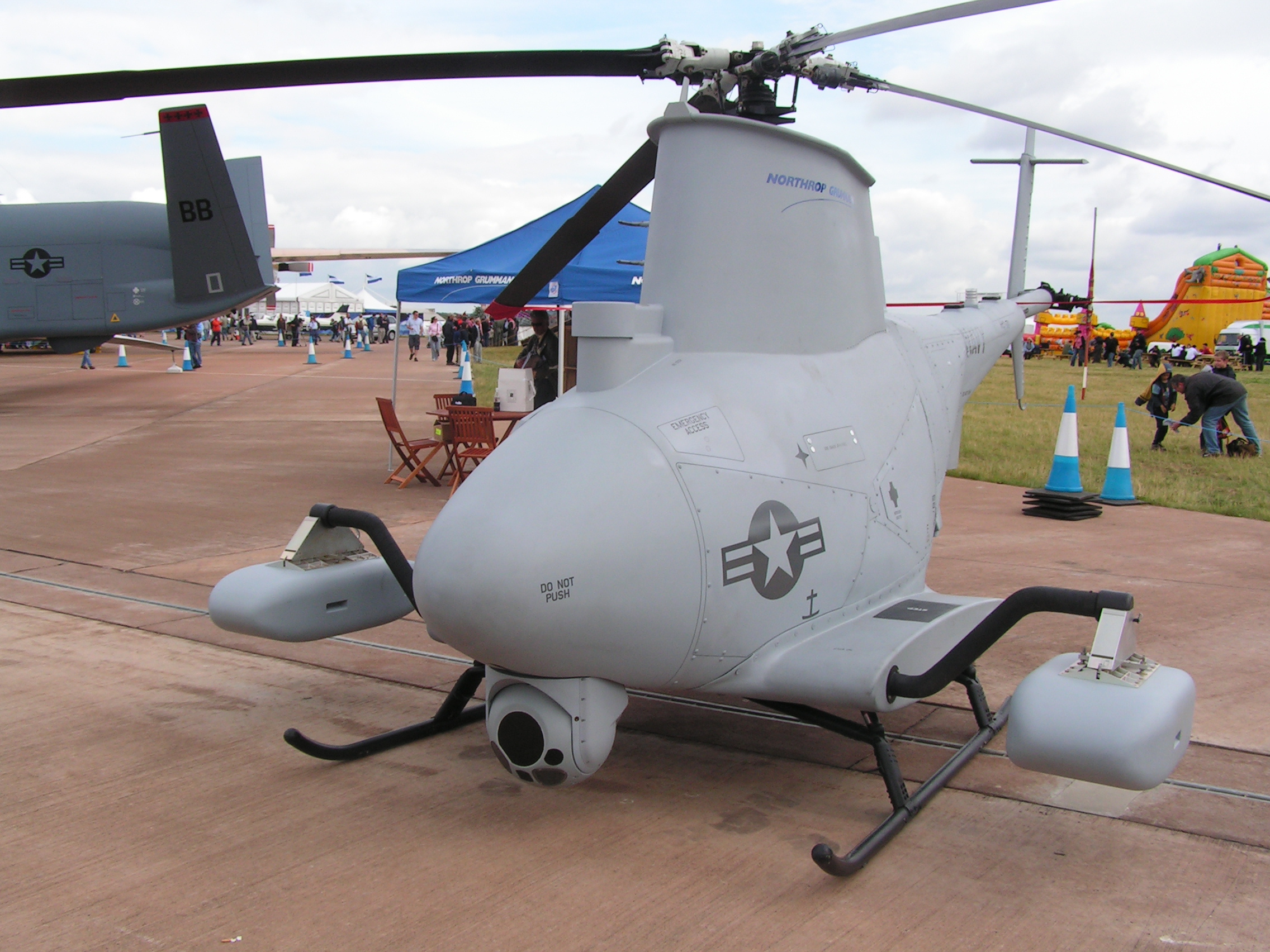الكويت وباكستان وهولندا يشترون. Fire scout
مروحية بدون طيار الشهيرة
http://defense.aol.com/2012/02/09/mideast-european-allies-eye-fire-scout-drone/
WASHINGTON: The Navy's venerable Fire Scout unmanned drone could go global if service leaders can lock in agreements with a number of key European and Mideast allies.
Navy leaders are considering foreign military sales of the Northrop Grumman-built Fire Scout to Kuwait, Pakistan and the Netherlands, according to a presentation by Marine Corps Col. James Rector, head of the small tactical unmanned aerial systems division at Naval Air Systems Command. Aside from the U.S. Navy, the Fire Scout is being flown by naval forces in Colombia, Tunisia, Poland and Iraq, according to PowerPoint slides from Rector's speech at the Association for Unmanned Vehicle Systems International's annual program review in Washington yesterday. He could not comment specifically on where the Pentagon was in the negotiations, noting that all FMS talks were still preliminary.
If the Navy can secure deals with Islamabad, Amsterdam and Kuwait City, the Fire Scout will be one of many pieces of U.S. naval hardware heading to allied forces. Australia and Japan are reportedly in informal talks with the Air Force over a potential purchase of the service's Global Hawk unmanned aircraft. International interest in the high-altitude unmanned drone is still strong, despite the Pentagon's failure to secure a deal with South Korea for the aircraft late last year. NATO's already secured a deal to buy the Block 40 version of the Air Force drone for their forces.
To that end, Australia has already agreed to buy the several copies of the Navy's newest version of the MH-60 combat helicopter, joining Thailand as the two foreign militaries to fly the Sikorsky-Lockheed Martin built rotorcraft. South Korea and and Saudi Arabia also considering deals to buy the Navy helo. The rise in foreign military sales highlight a trend among American defense industry firms, who are reaching out to growing markets in Asia and the Middle East to keep their spreadsheets in the black.U.S. defense firms are entering a "about a five- to seven-year window of opportunity that only comes along once in a while in the international arena," Boeing military aviation chief Chris Chadwick told AOL Defense earlier this year. The potential sales that could be pushed through that window, he added, will be largely focused on Asia and the Middle East. However, industry continues to be hamstrung by excessive export restrictions on U.S. hardware, particularly unmanned technology. The Pentagon and White House are moving ahead with efforts to help alleviate those restrictions, since the U.S. will become more dependent on its allies in future conflicts.
مروحية بدون طيار الشهيرة
http://defense.aol.com/2012/02/09/mideast-european-allies-eye-fire-scout-drone/
WASHINGTON: The Navy's venerable Fire Scout unmanned drone could go global if service leaders can lock in agreements with a number of key European and Mideast allies.
Navy leaders are considering foreign military sales of the Northrop Grumman-built Fire Scout to Kuwait, Pakistan and the Netherlands, according to a presentation by Marine Corps Col. James Rector, head of the small tactical unmanned aerial systems division at Naval Air Systems Command. Aside from the U.S. Navy, the Fire Scout is being flown by naval forces in Colombia, Tunisia, Poland and Iraq, according to PowerPoint slides from Rector's speech at the Association for Unmanned Vehicle Systems International's annual program review in Washington yesterday. He could not comment specifically on where the Pentagon was in the negotiations, noting that all FMS talks were still preliminary.
If the Navy can secure deals with Islamabad, Amsterdam and Kuwait City, the Fire Scout will be one of many pieces of U.S. naval hardware heading to allied forces. Australia and Japan are reportedly in informal talks with the Air Force over a potential purchase of the service's Global Hawk unmanned aircraft. International interest in the high-altitude unmanned drone is still strong, despite the Pentagon's failure to secure a deal with South Korea for the aircraft late last year. NATO's already secured a deal to buy the Block 40 version of the Air Force drone for their forces.
To that end, Australia has already agreed to buy the several copies of the Navy's newest version of the MH-60 combat helicopter, joining Thailand as the two foreign militaries to fly the Sikorsky-Lockheed Martin built rotorcraft. South Korea and and Saudi Arabia also considering deals to buy the Navy helo. The rise in foreign military sales highlight a trend among American defense industry firms, who are reaching out to growing markets in Asia and the Middle East to keep their spreadsheets in the black.U.S. defense firms are entering a "about a five- to seven-year window of opportunity that only comes along once in a while in the international arena," Boeing military aviation chief Chris Chadwick told AOL Defense earlier this year. The potential sales that could be pushed through that window, he added, will be largely focused on Asia and the Middle East. However, industry continues to be hamstrung by excessive export restrictions on U.S. hardware, particularly unmanned technology. The Pentagon and White House are moving ahead with efforts to help alleviate those restrictions, since the U.S. will become more dependent on its allies in future conflicts.




